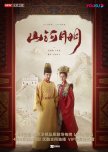
Precious Chinese History, Poor Editing
The Imperial Age is the story of Zhu Di (Emperor Yongle of Ming Dynasty, reigned 1402 to 1424) from his youth to his death at 64 years old. Compared with other Ming Dynasty dramas, this drama has fewer fictionalized events though some historical events have been watered down to make the characters more appealing, while others have been dramatized for dramatic effects. This version of the story is perhaps closest to the historical records.Zhu Di was the fourth son of Zhu Yuanzhang who was the founding Emperor of Ming Dynasty (reigned 1368 to 1398). His oldest brother, Zhu Biao was the crown prince designated for the throne. As Zhu Yuanzhang and his wife have humble origin as peasants (Zhu Yuanzhang was said to be a monk), the dynamics within the household are like any families of the commoners addressing each other informally. The Zhu household lives in harmony with loving parents and amicable children. Unlike most palace dramas, in this drama, it is very refreshing to watch the informality of parental and sibling relationships, with the Empress personally cooking in the kitchen for her family with no fanfare (there’s no wastage of food as in The Royal Feast, another drama set in Ming Dynasty). Palace life is simpler and happier.
Cheng Yi acts as the juvenile Zhu Di from episode 1 to episode 9. For once, Cheng Yi gets a happy and mischievous role as a prince who is well loved and pampered by his parents and siblings. His acting here is convincing as a 13-16 year old boy and rather funny as he gets paddled on the backside multiple times for his disobedience, and the actor’s bare back is even shown, fleetingly, when he’s being tendered for the wound.
Feng Shaofeng becomes the young 17 year old Zhu Di until his death at 64 as Emperor Yongle. Feng Shaofeng has a very affable demeanor, making the Zhu Di character very lovable, though he looks too mature for a 17 year old initially. Despite that, Feng Shaofeng looks very regal and authoritative, and has the charisma of an emperor. The drama lays out carefully all the events that have taken place prior to the uprising / civil war, and how Zhu Di comes to wrangle power from his nephew and become the Emperor. Ruthless and cruel as recorded in history books, the drama manages to show such cruelty is justifiable and the character is indeed a deserving respectable figure. Whatever it may be, I am not a historian and it’s not my place to judge the accuracy of such depiction. For me, the logic makes sense and ties in very well with the rest of the story and hence to call Zhu Di a great Emperor of his time.
My Verdict
The original version of the drama is said to be 80 episodes long. It is trimmed down to 45 episodes to fulfill the current government requirement. As such, one can imagine how the final product would become with a cut down of almost 50% of the work completed. There are many skipped scenes, making the story disjointed and can be confusing for non-Mandarin speakers. It’s at times like watching a jigsaw puzzle with the tail placed on the face, and the mouth on the rear side.
Despite the horrendous editing, this drama is still very enjoyable for its authenticity to the actual events. Though a palace story, there are no usual harem cat fights, no rivalry and scheming among the princes, but with a lot of resignations, tears and heartaches of losses. Feng Shaofeng has wept multiple times here with a unique wail. There are also long scenes of both the Emperor Hongwu’s (Zhu Yuanzhang’s) and Emperor Yongle’s (Zhu Di’s) accomplishments in their land reform, establishment of secret police (Jinyiwei aka Embroidered Uniform Guard), purging and execution of officials and their families, wars with the north-east, new capital and foreign engagement, military, bureaucratic reform, Zheng He’s expeditions to the south seas (just by-passingly, not in great details) etc. These scenes can be boring for some viewers who are more interested in action packed story telling. Having said that, some details are very funny and humorous. I believe many of such delightful details have been deleted in order to retain the main events for a shorten version of the story.
Emperor Hongwu has 26 sons from his Empress and various concubines, but in the drama, he’s shown to be only with his Empress all the time displaying his devotion to her. Likewise for Emperor Yongle who is devoted only to his wife Empress Xu. Therefore, there are no cat-fights among the concubines, and no revelation of how many concubines perish with the Emperors when they die. All in all, this drama tries to emphasize on devotion among the men and women in the story which may not be a reality.
The battle scenes are very well made though certain scenes have been reused again and again for various different battles. The endings of most of the characters are similar to what have been recorded in history books, with a few exceptions to make them more palatable for the viewers.
The whole cast is commendable, and the official soundtracks are touching and beautiful. If you are a Chinese history fan, you’d love this drama. I have thoroughly enjoyed it despite some of the shortcomings due to the massive editing. The original version (80 episodes) must have been a masterpiece.
Recommended for history buffs. Great watch! Bravo!
Was this review helpful to you?
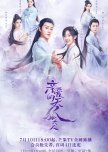
Wang Youshuo Looks Absolutely Stunning
"Dear Mr. Heavenly Fox" revolves around the legendary heavenly fox, Bichuan (played by Lu Xiaoyu, aka Rain Lu), who falls in love with Lingzi (Wang Youshuo), a spirit man destined for sacrifice to save the world. To prevent her beloved from being sacrificed, the fox crashes into the sacrificial mountain, sacrificing herself in the process. This act unleashes evil spirits, and Lingzi takes it upon himself to seal the lord of evil, sustaining fatal injuries and a broken heart in the process. He vows to be reborn as a fox in his next life and love her forever.In this life, Wang Youshuo's character, Zhang Yue, is born as a fox, while Lu Xiaoyu's character, Qi Yuanbao, is the Lingzi, a spirited child, carrying an evil spirit within her. The playful and mischievous Qi Yuanbao, along with her cousin brother Xue Hanyu (Zhou Zhaoyuan), engages in street fights and causes trouble. Many viewers are upset that Lu Xiaoyu is not pretty enough to play the role but I find her portrayal is truly convincing, and I think the casting directors made a great choice because in the story, Qi Yuanbao is said to have a common appearance, with someone even calling her ugly.
One day, Qi Yuanbao accidentally stumbles upon a forbidden place and encounters the heavenly fox Zhang Yue, who is cultivating there. By mistake, she consumes the spirit fruit that Zhang Yue is nurturing with his soul. To retrieve his soul, Zhang Yue follows Qi Yuanbao to the human world and becomes her teacher.
Zhang Yue's striking good looks and suave demeanor attract numerous admirers, including Qi Yuanbao, who falls deeply in love with him. Though initially embarrassed by her forwardness, Zhang Yue can't help but feel a connection with her and eventually falls for her. As the story unfolds, he becomes her protector and willingly sacrifices himself for her. Wang Youshuo delivers a heart-wrenching performance, truly nailing his role.
Amidst various villains seeking to harness the power of the evil spirit for their own gain, the entire cast portrays their characters convincingly. I was especially impressed with the story of the second couple, which is filled with bickering and explosive moments.
My Verdict
Although the drama has a cheesy title, the romance between the fox and the human is undeniably intriguing. However, there are some plot holes and instances of poor writing and editing, leading to confusing scenes that lack explanations. Characters facing life-threatening situations sometimes act nonchalantly, which seems illogical. Additionally, the dubbing doesn't always match the characters' mouth movements, creating a disconnect between audio and visuals.
The drama does end with a twist that results in the demise of beloved characters, followed by an abrupt resurrection scene, which feels somewhat bizarre. Perhaps to appease some viewers, a bonus episode with an alternative ending was added. Despite these shortcomings, "Dear Mr. Heavenly Fox" remains a highly enjoyable drama, especially thanks to the mesmerizing portrayal of the heavenly fox by Wang Youshuo. Overall, I would recommend giving it a watch!
Bravo!
Was this review helpful to you?
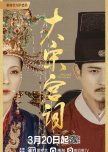
The Hands Behind the Power
This drama portrays the life story of Liu E, one of the most prominent empress dowagers in Chinese history (b. 969 – d. 1033). She became the regent of the Song Dynasty for Emperor Zhenzong (reigned 997 – 1022) and later, for Emperor Renzong (reigned 1022 – 1063). Here, Liu E is depicted as intelligent, benevolent, decisive and visionary, far exceeds her male counterpart. Her journey from rags to riches based on historical facts, is interjected with fictional stories and figures.The production cost for this drama is undoubtedly high with well know veteran actors, Liu Tao and Chou Yu Min, and the quality and acting are good. However, the editing is horrendous, in particular, for the first 10 episodes, making everything feel disjointed. There, events move very fast, from one big event to the next, supposedly unravelling over a span of time in days or weeks, even years, but the way the drama was cut, it feels like multiple events happening within the same day or hour, confusing and frustrating many viewers. The drama is said to have 80 episodes originally but drastically being trimmed down to 61 episodes.
Liu E has been portrayed as an evil woman in some literature which contradicts what historians think. In historical records, she was a very smart and courageous woman and had implemented many impressive projects that benefited the nation; her contributions were undeniable. Liu Tao's portrayal here is elegant and strong, and yet not lacking her feminine charisma. Whether or not this depiction is historically accurate, it is anybody’s guess. For me, compared with “Serenade of Peaceful Joy” where Liu E was portrayed in the first few episodes, I find some of the events in “Palace of Devotion” more plausible while others rather far-fetched with the writer’s imagination running wild. For example, how Liu E loses her biological children here seems over dramatic, but the request of wearing the emperor’s attire to a ritual ceremony seems out of place in “Serenade of Peaceful Joy” where a great deal of time is spent in arguing over the subject, whereas here, it becomes a brilliant idea by the Emperor himself to grant the Empress Dowager the status and privilege without much ado. Also how Cao (Empress Cisheng) comes to the life of Emperor Renzong is more believable in this drama than the previous one. However, I do love the dialogues in the former drama (“Serenade of Peaceful Joy”) which are more poise and humorous and the costume there perhaps more accurately depicted given Emperor Renzong was a very frugal person.
My Verdict
This is a rather well-done drama with decent CGIs despite the disjointed editing in earlier episodes and some inconsistencies in the logic of the fictitious events which are meant to spice up the story. Compared with “Serenade of Peaceful Joy”, “Palace of Devotion” is action packed with epic war scenes, spectacular warriors from Song and Khitan-Liao, and the settings are more opulent. The encounter of another great empress dowager, the Khitan Xiao Yan Yan, gives viewers two historically great women with strong personalities and powerful characters that leave deep marks in Chinese history; their intelligence and wisdom well supersede their contemporaneous male counterparts.
This is not a drama of great romance, and yet, Emperor Zhenzong is devoted to his Empress Liu. If not for the need of having a male heir for the throne, he wouldn’t have agreed to sleep with other women. This is pretty rare for a custom notorious for harems with thousand beauties.
Many viewers are also critical of the age of the main actors and complaint of their chemistry, Perhaps, these viewers are very used to having good looking young actors and fireworks type of romance. If so, this drama may not be their cup of tea.
“Palace of Devotion” comes with great character development and nice OSTs, at the same time, not lacking a sense of humor, tragedies and connivance.
Women have been an important force in shaping up societies and in politics. Seeing the two great empress dowagers of the time, a what-if question runs through my mind - what if women were given equal power, would we have a more peaceful and better world today?
Though not 100% perfect, this is a good historical drama for history buffs. I have enjoyed it. Great watch and recommended!
Was this review helpful to you?

愛而不得 "ai er bu de" (Unfulfilled Love)
An unfulfilled love is perhaps the most painful romance there is for a couple in love; it is also one of the seven bitterness in life. The official trailer has prepared the viewers for the ultimate ending of the story, and since episode one, most viewers like myself, brace for a painful and untimely ending in the final episodes. The good news is, this is only perhaps a third of the story told. The rest of the story will be told in modern times, thousands of years later in their next lifetime, and the new drama is currently waiting to be released.This is a touching, beautifully sad story. The female lead and male lead have loved each other so deeply for so many years, and yet they cannot be together. The story revolves around an unstable kingdom with a seemingly weak emperor and a power hungry controlling empress dowager. On top, there are enemies from within and without. No one knows who is foe or friend. Parricides, filicides and fratricides are rampant.
The development of the main couple's relationship from the beginning to the end is sweet and heart wrenching, with both leads mature and somber. As most viewers have already anticipated an ending that is tear jerking, every episode becomes heavy and painful to watch.
Zhou Shengchen (Ren Jialun aka Allen Ren) is an uncle of the then Emperor. To untangle himself from the power struggle within the palace, he changes his family name and barricades himself to guard the western border. He is intelligent, solemn and an incredible fighter. Who is more perfect than Ren Jialun to play this role? Here, Ren Jialun's performance is at his best, with an air of royalty and coldness, yet not lacking his affection for his love and his followers. His styling is also the best of all I have seen of the actor in his historical work. He looks so good and so convincing here. Despite adopting many followers, Cui Shiyi (Bai Lu) is the only one Zhou Shengchen falls in love with romantically, and yet he cannot love her openly and take her as his wife for he has vowed not to be married nor have offspring for life.
Cui Shiyi is the niece of the then Emperor’s teacher and her family holds high status in the society. To protect Cui Shiyi from any danger arises from palace political struggle, she’s sent far away to Zhou Shengchen and becomes his student. Growing up without a father, quickly, Cui Shiyi takes Zhou Shengchen as a fatherly teacher figure and gradually falls in love with him. And yet, fate doesn’t dwell her well.
Like Ren Jialun, Bai Lu’s acting here is also perhaps one of her best. She starts with a very young girl who doesn’t talk, and becomes a fine, mature young lady fit for an empress. Bai Lu has given us a remarkable performance for both her phases as a very young girl and then as a young lady. All the emotions on her face tell the silent sufferings she's going through and the longing for the one she loves.
Ren Jialun’s chemistry with Bai Lu is perhaps the best compared with his other co-stars in other dramas. Both exude the love and longing for each other, and yet they can’t say anything or take any actions. There’re hardly any physical contacts and yet their chemistry is overwhelmingly real that brings tears to the viewers’ eyes.
My Verdict
This is a beautiful romance with a lot of resignations. The characters are intelligent and lovely. The writing is intact and coherent, and the cinematography is good. All the war scenes are well done, in particular, Ren Jialun’s action scenes. Be warned though, the final two or three episodes are painful to watch.
Overall, a wonderful love story not to be missed. Bravo!
Was this review helpful to you?

Humorous, Beautiful Romance, Super Cute, Fine Acting
I love this delightful drama. It is visually aesthetic, the plot is light but deadly, the romance is cute and satisfying, the acting is on spot and convincing, the comedy is oxymoronic and can be ironic, both male and female leads are good looking, and the second couple is adorable. This is a story about a group of young and talented musical instrumentalists coming together and forming a girl-only heavenly orchestra during the fictional Sheng Dynasty in ancient China. There, little fox meets old fox.Li Sasa (Bao Shang’en) is an excellent first seat pipa instrumentalist. One day while performing, she mysteriously time-travels back to 1,000 years ago. To return to her present life, she needs to divorce a man who mistreats his wife, Li Runiang, her other self, and then to seek out and marry Li Runiang’s true love. After divorcing her good-for-nothing husband and losing everything, Li Sasa is desperate to find shelter so that she can find Li Runiang’s lover. Impressed by her talent, she is taken in by Lu Jingnian (Wu Chengxu) who is in need of a pipa instrumentalist for his team to take part in a very important competition in front of the Emperor.
Lu Jingnian seems like a Casanova on the outside as he’s loved by all the girls in town and he’s very kind and nice to each one of them, and with his colorful and flowery outfits, he earns the nickname “flowery peacock” from Li Sasa. Lu Jingnian is also very intelligent, crafty and cunning, thereby is double named as “the old fox”. Bringing her present-day directness and smartness, Li Sasa seems like a “little fox” to Lu Jingnian. But behind that flamboyant façade, Lu Jingnian is a devoted man, just like his father who finds life meaningless when his wife dies, and follows her in death soon after.
Lu Jingnian has a noble but dangerous mission to accomplish. As he and Li Sasa encounter problems with their team members, mysteries and dangers, each time Li Sasa assists Lu Jingnian overcome the problems, and in turn, Lu Jingnian selflessly saves her multiple times. They fall deeply in love with each other. When Li Sasa realizes she will leave Lu Jingnian and back to her modern life one day, she’s torn. She knows Lu Jingnian would be devastated to lose her. What follows becomes very heartbreaking and the story is being told beautifully with coherent logic.
I must applaud these two very young actors, Bao Shang’en 20, Wu Chengxu 22. This is Wu Chengxu’s second drama playing the main lead and Bao Shang’en’s debut. Their acting is natural and very believable. Despite their relatively inexperience, they have worked hard and put up an excellent show, making viewers falling in love with the characters instantly.
The overall acting by other cast members is good with some more convincing than others. The costumes and interior wall decors are very colorful and beautiful which match well with all the exquisite classical instruments. The ensemble is picturesque, and it feels like looking at a historical painting.
My Verdict
I have absolutely enjoyed this under-the-radar drama. The classical ensemble reminds me of today’s the 12 Girls Band of China. Visually, it’s beautiful and the ancient music is soothing. The romance is cute and humorous, and the acting and story are better than my expectations. Though some scenes are cliché and tropey, I love how the writer uses idioms to express the musical terms, and how coherent the overall storyline and logical the plot are. Cheeky instrumental music with animal sounds are widely used to match the funny scenes. Red eye and fake dimple makeups for the girls take a bit of getting used to for me.
Sacrificing one's life for love seems romantic but unthinkable. Though many people continue to live a fruitful life when the love of their life dies, many also die with their loved ones simply out of broken heartedness. Here, the ending of the ancient lovers feels like the butterfly lovers to me. Having said that, this is not a sad ending story (read comments below for my interpretation of the ending).
Yes, this is a wonderful little gem not to be missed. Romance buffs will love this story. Strongly recommended.
BRAVO!
Was this review helpful to you?
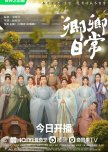
Girl Power – Delightful and Inspiring
Despite being set with a background of a royal harem in a fictional world, this drama exudes positive aura throughout, without the typical and tiring hair-pulling cat fights commonly seen in historical palace dramas. “New Life Begins” describes a utopia where girls band together to help each other, freeing themselves and achieving their goals, realizing the adage “unite is power”. Most of the characters are lovable, albeit with flaws, and their growth is distinct, from being weak and helpless to being strong and courageous. The story is inspiring and comforting.Centers around Xin Chuan, one of the nine kingdoms, and its sixth Prince, Yin Zheng (Bai Jingting)’s household, the story contrasts each kingdom which has its individual unique characteristics, features and cultures, with Xin Chuan being the leader of the pact. To build cordial relationships with all the other kingdoms, the King of Xin Chuan wants his sons to marry noble girls from the various kingdoms. He calls for the kingdoms to send their best eligible girls. Li Wei (Tian Xiwei) is selected and sent to Xin Chuan; she is reluctant, for Li Wei doesn’t want to marry a man she doesn’t love, and she wants a one-man-one-woman marriage with equal rights practiced by her home kingdom whereas Xin Chuan still follows the traditional polygamous system.
Among all the noble girls, Li Wei seems to be the least favorable for she tries to wriggle out of the wife selection process. Despite that, she is chosen by Yin Zheng the 6th Prince as a “side” wife, for Yin Zheng wants to maintain his low profile by marrying a girl nobody wants. Yin Zheng looks sickly and to survive in the back-stabbing treacherous palatial world, he blends himself into the background that nobody takes notice of. What seemingly an unlikely relationship, Yin Zheng and Li Wei fall in love with each other.
Li Wei is intelligent, compassionate, and down to earth. She provides Yin Zheng with practical ideas and helps him maneuver and eventually get noticed by his father, the King. How she makes friends with Yin Zheng’s “proper” wife and the wives of his brothers, all of whom later become her business partners and they help each other to become independent, is very inspiring. Tian Xiwei’s Li Wei is natural and believable. She has given a wonderful performance here.
Bai Jingting’s Yin Zheng is equally great. The actor is very pale and slim and does look sickly, which is perfect for the Yin Zheng character. Under that weakling skin, Yin Zheng is intelligent, well-read and a competent fighter that no one is aware of. Despite he has two wives initially, he is devoted to Li Wei only; his relationship with his “proper” wife is cordial and platonic. Bai Jingting has been one of my favorite actors. His acting range is very wide, from a ping pong champion in Ping Pong Life, to a special taskforce police officer in You are My Hero, to a silly and humble character in Octogenarian and the 90s, and to a historical prince in New Life Begins. He immerses himself completely into all his characters, giving viewers very convincing and lovely performance in each. He is always subtly funny.
Each prince has his story with his wife/wives. Most of their stories are hilarious and relatable. For example, the fifth Prince loves his wife and is helpful, but he can’t get a thing right; the third Prince has multiple wives but can never get their names straight. All the other characters are lovable, even the antagonists are pitiful, and the whole cast is very believable. Though despicable, the second Prince who is groomed to succeed the throne, and the fourth Prince, extract sympathy from the viewers when they get into trouble.
My Verdict
This is a heart-warming drama with girls helping girls, and trying to change the male-centered system. All the girls are intelligent, courageous, and independent. Despite their unfavorable environment, they don’t self-pity nor fight among themselves but help and take care of each other. This eventually makes the group strong and enables them to be financially independent, maintain their dignity and eventually change the society to a fairy one. This may sound very feminist to many viewers, nonetheless, it's one of those easy and delightful story that can cheer viewers' mood.
Romance wise, the chemistry between Bai Jingting and Tian Xiwei is pretty good and sweet. There is also a very lovely second couple here with a very funny relationship.
The message: No matter where one comes from, be it Iran, Afghanistan, Pakistan, China, or even the open west where girls are being suppressed and their rights infringed, only when girls unite and work together, great things can be achieved, and dignity maintained.
Easy watching and entertaining. Recommended!
Was this review helpful to you?

Brotherhood, Self-sacrifice, Touching, Funny, Great Acting
This is an uplifting youth drama. It is humorous and heartwarming with amazing story telling and fantastic acting. There is no romance, which I’m very pleased because I’m tired of the tropey romance that has been churned out repeatedly. This story is about brotherhood and friendship, set in the year of 2005 when flip phones were in use, in a third tiered city north of Beijing close to the border of Korea where the Korean language is widely spoken.Ye Xiaowen (Chen Youwei) is a 17 year old orphan living in the orphanage when Gao Yang’s (Xin Yunllai) father, Gao Bin (Lu Fangsheng), a divorcee, finds him and takes him home to live with them, without telling Gao Yang Ye Xiaowen's background. Gao Yang is also 17 years old and both kids sit together in class and sleep in the same bedroom. At the beginning, Gao Yang cannot understand why his father has taken home a boy whom he has never known, to live them and he’s pretty unhappy about it. In every way, he tries to make life difficult for Ye Xiaowen. Ye Xiaowen is an introvert who doesn’t show his feelings easily and endures all the abuses Gao Yang throws at him. Through misunderstanding and rumors, both Ye Xiaowen and Gao Yang had thought Ye Xiaowen a bastard child of Gao Bin, and this has created hilarious events until Gao Bin proves that he’s not the father. Gao Yang later finds out that Ye Xiaowen is an orphan and since then, he vows to take care and protect Ye Xiaowen with everything he can.
Gao Bin is a PE teacher but he’s not very well disciplined and Gao Yang has no confidence in everything his father does. Ye Xiaowen is a competent long-distance runner and Gao Bin becomes his coach and he aims to help Ye Xiaowen compete and win scholarships to get into his dreamed university. However, due to Gao Bin’s lack of discipline, his son becomes Ye Xiaowen’s second coach and both go through ups and downs together, never abandoning each other. Their relationship grows over the days and brotherly love for each other is solid and genuine. They encourage each other and want the best for each other.
This drama gives the viewers very strong character development, from an undisciplined teacher to a responsible one whom everyone loves and respects, from a lazy and rebellious boy to a hardworking compassionate young adult, from an introvert to a bright, hopeful, striving youth. All the other side characters also undergo strong character development and achieve their dreams.
My Verdict
This is a great story of compassion, selflessness, courage, and brotherhood. It is touching and yet very funny. All the characters are relatable as they are just like your everyday neighbors with similar flaws. There is a lot of genuine care and love with community spirit; everyone watches out for each other. The acting is very natural and believable, the directing and the editing are close to perfection. All the scenes are delightful, and the sad scenes can draw tears because we, as viewers, can relate. Every character has a story to tell and a dream to fulfill. The selection of actors is appropriate and the chemistry between the main leads is wonderful.
There is nothing BL about this drama. To me, the relationship is not even bromance, just simple brotherhood and trust, like a family.
This is a fun drama for the whole family. Don’t miss it!
Strongly recommended!
Was this review helpful to you?

Annoying Secondary Characters
Let me go straight to the points. For me, this is an annoying drama. Despite the fact that Deng Lun is one of my favorite actors, the story, dialogues and acting (apart from Deng Lun’s) are definitely lacking. Most of the characters are super annoying, making me want to throw the pillows at the TV most of the time. The story seems to go around and around. The logic of the story and characters is outrageous and unfathomable. On top of that, the dubbing is super bad with lips not synching. Everything is a cliche and predictable.Having being so critical of this drama, to be fair, I want to praise its music which is pretty good and I have truly enjoyed it.
If you have better dramas to watch, don't waste time on this one unless you want to watch Deng Lun, or you like Republic era dramas.
Was this review helpful to you?

Happily Ever After
This is an epilogue released some time after the final episode of The Sleepless Princess and I almost missed it. The epilogue in effect is an alternative ending to what was released in episode 35. Here, Xue Yao doesn't jump off the cliff holding a sleeping Xu Chu Yue in his arms. She wakes up in the nick of time and they make up all their lost time together, traveling the world.To make it even sweeter for the distraught viewers, the production team also added life after they get together. They have a child who Xu Xing Chen is babysitting while the lover birds are honeymooning. Xu Xing Chen by now is the Emperor. Accordingly, the couple is like being glued together and has been living away from everyone for the last 4 years. Between them, they have a private wedding vow with no elaborate feast. Their married life is an ideal life for any couples - traveling the world just by themselves, without the kids. However, at times, they're also like normal parents, worried about and protective over their kid.
The epilogue also includes all the things that are not concluded properly previously and gives everything proper closures. All the other second couples finally have their happy endings. I believe this happy ending makes many viewers very happy too.
Was this review helpful to you?
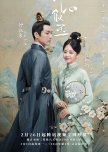
How to survive as a woman in an aristocratic household
The first reaction for most viewers is, “So many wives and concubines!” Many simply cannot tolerate such polygamous relationship and drop the drama. This is rather unfortunate because in real life, polygamy was the norm in ancient Chinese society. Therefore, this story has realistically portrayed life in wealthy and aristocratic households, and captured the suppression, and relentless in-fighting and conniving among wives and concubines in the harem, and interfamily feuds among various clans.My alternative title could have been "How to survive Confucianism as a woman". As Confucianism was widely practiced during the Ming Dynasty when this story is set, self-restraint was valued highly as individuals endured all things, good or bad, thrown at them without retaliating. It’s indeed hard for modern viewers to empathize with such value which was then considered as virtue. Women were suppressed, and were born to serve the men – fathers when they were unmarried, husbands when married, and sons when they became mothers.
When Luo Shi Yi Niang (Tan Song Yun aka Seven Tan) is forced into an arranged marriage to Xu Ling Yi (Chung Hon Leung aka Wallace Chung) to "replace" her deceased older sister, she has attempted to run away. Circumstances prevent her from doing so. As she thinks she would never fall in love with a man who has multiple spouses, she falls in love with him because indeed he’s a very decent man who treats her well and loves her above everything else.
Tan Song Yun is one of my favorite actors. She can be a very convincing teenager and I love most of her other dramas. I like her too in this drama, but somehow, I have a hard time in fitting her into the story, either because of her aura or something else. Perhaps for me, I can’t see her playing a meek role here, submitting to her fate; I have always seen her playing characters that don’t conform and always hit back when pushed.
Xu Ling Yi is a good government official bound by tradition and duty, and has a heavy burden on his shoulder in holding up his large household as well as performing his duties as an upright incorruptible bureaucrat who loves his country and loyal to the Emperor. Chung Hon Leung has a natural stiff upper lip and fits well into the filial pious Xu Ling Yi character who speaks few words and never shows his emotions. His portrayal is good and convincing. Filial piety as virtuous as it is, can also quickly become an impediment to progress, critical and rational thinking. And here, he’s made to take in multiple concubines by his mother, the Matriarch, in order to propagate, only to add on more heartaches and hatred within the household.
As much as the story wants to portray a suppressed society, it also tries to placate viewers who would have preferred a more just world with love and retribution, hence here we are given a true love, one-man-one-woman story for an ending which may feel a bit banal.
My Verdict
Overall this is quite a realistic story - no love at first sight, no firework romance, both the ML & FL are intelligent and mature with same family values built on love and trust. There is fighting but no wuxia, a lot of conflicts in almost every household (realistic aristocratic family portrayal of the era) and in politics (true historical event of banning of sea trade that had led to hardship and piracy), strong Confucius values and philosophy permeate daily life. The actual story (plot) is nothing to be excited about, but the portrayal of life during the Ming Dynasty under Confucianism, the shooting (camera work), screen writing, costumes and editing are quite good, hence my 9/10 rating. I have rather enjoyed this drama.
Was this review helpful to you?

A Lighthearted Yet Thought-Provoking Rom-Com
After the emotional rollercoaster of The White Olive Tree, I was desperate for something lighthearted to lift my spirits. Enter Filter, a delightful drama that had me laughing from the first episode to the last. While the story is undeniably hilarious and easy to watch, it also carries a profound and relatable message: don’t judge a book by its cover. This theme resonates deeply, making Filter more than just a comedy—it’s a heartfelt exploration of prejudice, self-worth, and the importance of seeing people for who they truly are.The Story: A Magical Twist on Love and Misunderstanding
The plot centers on Tang Qi, a nerdy, color-sensitive entrepreneur who co-runs a beauty company with his two friends. His life takes a turn when he encounters Su Cheng Cheng, a former high school junior, at a party. After a mishap leaves her makeup smeared, Tang Qi snaps a photo and callously remarks, “So ugly.” Unbeknownst to him, this moment sets off a chain of events that will challenge his biases and reshape his understanding of love.
Su Cheng Cheng, still harboring a crush on Tang Qi from their school days, is gifted a magical bracelet that allows her to transform into different characters. Using this power, she begins working at Tang Qi’s company, where her professionalism and contributions earn everyone’s admiration—except Tang Qi’s. His preconceived notions about her cloud his judgment, creating a rift between them.
As Su Cheng Cheng transforms into various personas, Tang Qi repeatedly falls for these characters, only to be heartbroken when they “die” or disappear in increasingly absurd ways (lightning strikes, anyone?). These over-the-top “deaths” are played for laughs, but they also highlight Tang Qi’s growing emotional turmoil. Eventually, he begins to suspect something is amiss, leading to the revelation of Su Cheng Cheng’s secret. The resolution is both satisfying and heartwarming, as Tang Qi realizes that the person he’s been searching for has been right in front of him all along.
The story’s moral—treasure the one around you—is simple yet powerful. It reminds viewers to look beyond appearances and examine their own biases, lest they miss out on something truly special.
The Characters and Acting: Perfectly Cast, Flawlessly Executed
֎ Tang Qi (played by Tan Jian Ci):
Some viewers criticized Tan Jian Ci for looking too mature for the role, but I found him to be the perfect embodiment of Tang Qi. With his nerdy, slightly awkward demeanor, Tan Jian Ci effortlessly captures Tang Qi’s blend of intelligence and social cluelessness. Tang Qi is a man of few words, often blunt to the point of being misunderstood, yet he possesses an inner strength and persistence that make him endearing. Tan Jian Ci’s portrayal is nuanced, bringing depth to a character who could easily have been one-dimensional. His chemistry with Li Landy is palpable, making their eventual reconciliation all the more satisfying.
I’d like to take a moment to clarify what Tang Qi actually meant when he blurted out the words, “So ugly.” At first glance, his comment seems harsh and superficial, but there’s much more to it than meets the eye. Tang Qi wasn’t criticizing Su Cheng Cheng’s appearance or calling her inherently ugly. Instead, his reaction stemmed from his extreme sensitivity to colors and aesthetics. As someone deeply attuned to visual harmony, he was appalled by the cheap, smeared makeup that clashed with Su Cheng Cheng’s natural features. In his mind, the makeup was “ugly” because it didn’t do her justice—it ruined her face.
However, Tang Qi’s social awkwardness and inability to articulate his thoughts led to a catastrophic misunderstanding. Su Cheng Cheng, already self-conscious about her appearance, took his words at face value, assuming he was mocking her. This moment created a long-lasting animosity between them, fueling her resentment and shaping their complicated dynamic. It isn’t until much later, when they finally reconcile, that Tang Qi clarifies his true meaning, revealing the depth of his character and the misunderstanding that had plagued their relationship.
At the same time, it’s important to note that Tang Qi’s initial coldness toward Su Cheng Cheng isn’t just about the makeup incident. His behavior is also rooted in his past experiences with her during their school days. Back then, Tang Qi misunderstood Su Cheng Cheng’s clumsy attempts to connect with him as acts of bullying. Her naivety and overenthusiasm came across as intimidating to him, and he formed a lasting impression of her as someone to be wary of. This misunderstanding further fueled his prejudice, making it difficult for him to see her for who she truly is—a kind, compassionate, and well-meaning person.
Unfortunately, some viewers drop the drama at this early moment (when he blurted out "So ugly"), misinterpreting Tang Qi as a shallow, face-obsessed jerk. This is a shame, as it overlooks the nuance of his character and the broader themes of the story. Tang Qi isn’t superficial—he’s socially inept and struggles to express himself, which makes his journey of growth and self-awareness all the more compelling. His initial comment is less about judgment and more about his unique perspective on beauty, which ultimately aligns with the drama’s central message: don’t judge a book by its cover.
So, to new viewers, I urge you not to let this moment deter you. Filter is a wonderful drama with layers of humor, heart, and meaning. Tang Qi’s seemingly callous remark is just the starting point of a story that challenges assumptions, explores prejudice, and celebrates the beauty of seeing people for who they truly are. Stick with it—you won’t regret it!
֎ Su Cheng Cheng (played by Li Landy):
Li Landy shines as Su Cheng Cheng, a strong, compassionate, and slightly naive woman who refuses to let societal standards define her worth. Despite being constantly compared to her taller, more conventionally beautiful sister, Su Cheng Cheng remains confident in her beliefs: true beauty lies in how a person treats others. Li Landy’s casting was criticized by some for not fitting the “model” archetype, but that’s precisely the point. Su Cheng Cheng is meant to be relatable—an ordinary girl with extraordinary heart. Li Landy’s performance is both charming and authentic, making Su Cheng Cheng a character viewers can’t help but root for.
The dynamic between Tang Qi and Su Cheng Cheng is a highlight of the drama. Tang Qi’s initial prejudice and Su Cheng Cheng’s motherly, slightly overbearing care for him create a push-and-pull tension that’s both funny and touching. Their relationship evolves naturally, culminating in a heartfelt realization that love isn’t about appearances—it’s about connection.
Su Cheng Cheng’s personas, brought to life through the magical filter bracelet, are as diverse as they are entertaining. These include:
֎ Su Miao (played by Luo Qiu Yun), a tall, stunning beauty who resembles a famous model;
֎ Fang Jin (played by Pu Tao), a brilliant scientist with a sharp mind and impressive academic background;
֎ Quan Sheng Tang (played by Wang Hong Yi), a strikingly handsome young man; and
֎ A camel sheep—yes, you read that right—a talking, human-like animal that stands on two legs (because why not?).
Of all these characters, only Fang Jin is based on a real person. The others are entirely imaginary, conjured up by Su Cheng Cheng’s creativity (and perhaps a touch of desperation).
Su Miao is the first persona Tang Qi falls for, and it’s easy to see why. With her model-like beauty and elegance, she captivates him at first sight. This only reinforces Su Cheng Cheng’s belief that Tang Qi is shallow and only cares about appearances. However, when Su Miao “dies” (in one of Su Cheng Cheng’s hilariously over-the-top schemes), Tang Qi is utterly heartbroken. His genuine grief shows that his feelings run deeper than just physical attraction.
In an attempt to comfort him, Su Cheng Cheng transforms into the camel sheep, a bizarre yet oddly endearing creature. This allows her to stay close to Tang Qi and care for him without revealing her true identity. Tang Qi, despite being initially freaked out by the animal’s human-like demeanor, grows emotionally attached to it. His confusion and near-hallucinations over the situation provide some of the drama’s funniest moments.
Next, Su Cheng Cheng becomes Fang Jin, a super-intelligent scientist with a stellar academic record, despite Fang Jin is not a beauty. Tang Qi falls for her too, but here’s the twist: he only loves the version of Fang Jin that Su Cheng Cheng portrays, not the real Fang Jin. This proves that Tang Qi isn’t just drawn to brilliance or beauty—he’s drawn to the essence of Su Cheng Cheng herself. However, in Su Cheng Cheng’s mind, she assumes Tang Qi only likes “smart girls,” leading to even more misunderstandings and comedic chaos as she switches between Fang Jin’s various personalities.
Finally, Su Cheng Cheng transforms into Quan Sheng Tang, a ridiculously handsome young man whose name literally means “win all against Tang.” This persona is another one of Su Cheng Cheng’s schemes to distract Tang Qi from pursuing Fang Jin. While I secretly hoped this would lead to a hilariously awkward gay romance, the drama doesn’t quite go there—though the absurdity of the situation still delivers plenty of laughs.
Through these personas, Filter explores themes of identity, perception, and love in a way that’s both humorous and heartfelt. Each transformation not only adds to the comedy but also deepens Tang Qi’s emotional journey, showing that his feelings transcend appearances and personas. It’s a wild, whimsical ride that keeps viewers guessing—and laughing—until the very end.
֎ Supporting Cast:
The supporting characters add depth and humor to the story. Su Cheng Cheng’s best friend, Lin Yuan (Huang Si Rui), provides comic relief and unwavering support, while Tang Qi’s business partners and Su Cheng Cheng’s family further enrich the narrative. There are no major antagonists, just minor obstacles that are quickly resolved, keeping the tone light and focused on the central romance.
Final Thoughts: A Perfect Escape with a Meaningful Message
Filter is my go-to comfort drama, a perfect blend of humor, romance, and life lessons. It’s the kind of show that makes you laugh out loud while also prompting introspection. The misunderstandings between Tang Qi and Su Cheng Cheng are both frustrating and endearing, reminding us how easily prejudice can cloud our judgment. Tang Qi’s journey from bias to acceptance is a poignant reminder to see the people around us and appreciate them for who they truly are.
The drama also tackles themes of self-worth and societal beauty standards with a light touch, never becoming preachy. Su Cheng Cheng’s unwavering confidence in her own values is inspiring, and her relationship with Tang Qi is a testament to the idea that love transcends appearances.
In the end, Filter is more than just a rom-com—it’s a celebration of individuality, a critique of superficial judgments, and a reminder to cherish the people who truly matter. Whether you’re looking for a laugh, a cry, or a bit of both, Filter delivers on all fronts. Highly recommended for anyone in need of a feel-good story with substance.
Rating: 10/10
Filter is a gem of a drama that balances humor and heart with a meaningful message. It’s the perfect antidote to a bad day and a reminder to look beyond the surface.
Was this review helpful to you?

No One is Above the Law
"The Legend of Anle" is an engaging drama that centers around Ren Anle, a courageous pirate seeking justice against the Emperor, who falsely accused and executed her entire family, along with 80,000 military men. The story also delves into her complicated romance with the Crown Prince of Great Jing, to whom she was betrothed since birth. Can one truly love someone whose family has caused so much pain and suffering to one? Adapted from Xing Ling's novel "The Emperor's Book," this drama features Dilraba Dilmurat as Ren Anle, portraying her with authenticity and charm.As the playful and forthright Ren Anle, and later as the determined and resolved Di Ziyuan, Dilraba's acting is truly convincing. Alongside her, Gong Jun shines as Han Ye, the virtuous and selfless Crown Prince. Despite some criticism, his performance exhibits good chemistry with Dilraba, showcasing the complex dynamics of their relationship.
The entire cast has been thoughtfully chosen for their respective roles, and the high-quality costumes and props reflect the dedication of the production team. The beautiful and touching OSTs add to the overall appeal of the drama, making it a captivating watch.
However, it's fair to mention some negative aspects of the drama. There are instances of plot holes and childish logic, which might detract from the viewing experience. Additionally, repetitive narratives stretching into many episodes can lead to viewer fatigue (eg. Ren Anle harps about her 30,000 navy force as dowry, Han Ye insists that he would only marry Di Ziyuan, Di Cheng’en laments that she has suffered on the mountain for 10 years, Ren Anle laments of the 80,000 dead Di soldiers, etc.). Nevertheless, the character development remains consistent, even with some changes from the original novel.
My Verdict
While the drama primarily focuses on scheming, revenge, espionage, and war, the last three episodes gracefully shift towards the main couple's romantic journey. Overall, "The Legend of Anle" may not be flawless, but it is still a decent and worthwhile watch. So, if you're a romance fan or a fan of Dilraba or Gong Jun, don't miss out on this one!
Was this review helpful to you?

The Sunset Boulevard
If you have elderly parents, grandparents or great grandparents, you sure can relate with the characters in this drama, each is realistically written with a story to tell. This is a story about a phase that all of us will eventually face one day, that is growing old. It’s frightening for many but inevitable, yet the drama has made it funny, blunting the pain of reality, at the same time, capturing all the details, good and bad, happy and sad, as we may eventually come to terms with when we grow old ourselves.Sunshine Home is a nursing home taking care of the elderly from all walks of life. Some are ill with dementia and disability, some don’t have children to take care of them, some don’t want to burden their loved ones, but all have a story to tell. This story is told from the perspective of Ye Xiao Mei (Wu Qian aka Janice Wu). How she has come to inherit the senior home from her grandmother is heart-wrenching. As a passionate manhua (comic) artist, Ye Xiao Mei is reluctant to get involved in her grandmother’s mission. However, she eventually comes to understand what that mission signifies and she knows she has the duty to continue her grandmother’s legacy. And life in the senior home has also become the inspiration of her manhua story.
Ye Xiao Mei is intelligent, independent and strong. When others have given up in dealing with certain recalcitrant elderly, Ye Xiao Mei always finds a way, especially with the help of Guo San Shuang (Bai Jing Ting). With her compassion and firmness, she defuses tense situations involving various players. She has no qualm in getting her hands dirty, helping the elderly in their daily needs, dealing with foul temper old men and picky old ladies, and calming anxious ones. Wu Qian (Janice Wu)’s portrayal is amazing. As an actor, she naturally possesses that firm, no-nonsense attitude with a calm hand that fits perfectly into the role of the director of a nursing home. She is so natural and authentic that I have enjoyed every moment of her performance.
Guo San Shuang (Bai Jing Ting) is originally a health supplement salesman who is desperate to meet sales quota, and has scammed the elderly whom he sells products to. His conscience calls, quits his sales job, comes to help Ye Xiao Mei and lives in the Sunshine Home. Guo San Shuang is cartoonish, to say the least. He is compassionate, intelligent with unlimited resources to solve all kinds of difficult problems for Ye Xiao Mei. His sincerity infuses with silliness melts all hearts.
Bai Jing Ting is such a versatile actor. From a wimpy kid (Ping Pong Life) to a police SWAT (You Are My Hero) to a salesman in this drama, he has it all. His acting is immaculate and convincing. Having an adolescent face with youthful energy, Bai Jing Ting’s Guo San Shuang is lovable and funny. He is comical most of the time with funny facial expressions, silly words and deeds, and he is unabashed. He provides the much needed humor that softens the cruel reality of life.
Ye Xiao Mei’s and Guo San Shuang’s romance is slow burning. In actual fact, there is hardly any visible romance at all, though Guo San Shuang is pretty blatant in counting himself as Ye Xiao Mei’s boyfriend and her family his. Though denying their special relationship openly, Ye Xiao Mei’s feeling for Guo San Shuang is undeniable too but she refuses to give him the joy in admitting she is his girlfriend. Therefore, in a way the romance is mutual but implicit, like couples getting to know each other so well that they don’t need to declare their love for each other anymore. They do things together all the time and they share everything. In time, they become part of each other. They know deep in their hearts, they have each other.
Throughout the drama, sharp tongues are thrown everywhere with piercing comments. The dialogues are hilarious, witty and unforgiving, and yet cute and endearing. The dynamics between the old and the young, friends and friends, are incredibly well written and executed. Being young like a grandson to all the residents here, under different circumstances, Guo San Shuang is often being addressed as “sun zi” which has a double meaning; one means grandson and the other is derogatory. It is this type of humor that makes viewers laugh out loud in the midst of chaos.
This drama boasts some very fine veteran actors. Their acting is natural and convincing as if they are the real characters themselves. Overall, the acting by the whole cast is amazing and believable.
Every character has flaws; some more so than others. How the dynamics between the characters play out help make them (the characters) alive, realistic and relatable. Learning and growing are not limited to the youngsters. Even the elderly continues to learn and grow and become better persons.
The sound track “Fearless” (Go Ahead) is played, appropriately depicting the inner voice of Ye Xiao Mei when she faces the biggest challenge of her life – succeeding her grandmother as the Director of Sunshine Home.
My Verdict
This drama boldly tells a story many shun – old age, dying and death. The writing is heart-wrenching and yet very funny. This is a very realistic story that all of us have to face one day and live through. The characters are real, with people from all walks of life, making a living with all kinds of trades – salesmen, debt collectors, scammers, etc. Some are decent people, some are despicable. The elderly is the group that is often forgotten by society. They are gullible and desperate, hence vulnerable, a perfect target for scammers which is highlighted here.
Though old and frail, at Sunshine Home, they are not lonely; they are being loved, cared for and cherished. This is their haven where they seek solace and maintain their dignity.
Life is bitter, and sweet, at the same time. All it takes is the perspective to have more of, or less of, either. Some of the characters here are positive and their lives tend to be sweeter, even when they meet challenges. Some are more negative, and they are bitter, draining themselves and the people around them. As old people were also once young like us, and we will grow old ourselves eventually, we need to be more compassionate towards them and empathize with them, and that's the message of this story.
A well written drama that deserves to be cherished. A great watch!
Was this review helpful to you?

Lifetime of Love, Regrets and Sacrifices
Happy, sad, happy, sad, and happy. Yes, these are the emotions I have been experiencing throughout this drama. When the times are good, everything is cute, lovey-dovey and funny. Then chaos strikes, I cry for the losses. And life starts all over again. Things become cute and funny once more, and I laugh. Just as the water is finally calm, chaos strikes again. I cry my eyes out for the losses, mourning for my favorite characters. It is really amazing how such a drama can fully capture our emotions and make us feel for the characters so much.60,000 years ago, almost everyone dies after the battle of the gods and the demons. Now 60,000 years later, the gods are reborn through the remnants of their spirits. They become the immortals, relatively young gods with lower power. They meet and fall in love all over again, until the true gods, who are within their subconscious, are awoken, and their minds merge and bodies taken over. At the same time, the return of the devil means another war is imminent.
Shang Gu (Zhou Dong Yu) is a happy-go-lucky, one of the four true gods, doted by the other true gods, Tian Qi (Liu Xue Yi) and Zhi Yang (Li Ze Feng). She’s carefree and playful, but the stern teachings of Bai Jue (Xu Kai), one of the four, help her realize her potential, and she falls head-over-toes in love with him. Through him, she begins to understand the importance of her role in the universe. With that, she grows stronger and becomes the most powerful god of all. This growing pain doesn’t come easy. It takes her through enormous emotional struggle and eventual sacrifice of herself for the greater good.
Zhou Dong Yu’s acting hits the mark, as Shang Gu and Hou Chi, right on the spot. She can be girly and playful with a sweet mesmerizing smile. Then in one whiff, becomes a serious and powerful god feared by all. Many viewers complain that Zhou Dong Yu not beautiful enough, to that I would say beauty should not be the focus here, but her aura and acting should.
Bai Jue grows from a cold emotionless being into a person who can feel love and love in return. Many viewers complain Xu Kai can’t act, but to me, his acting is exactly right without overacting. As Bai Jue, he is cold and emotionless (ironically Tian Qi nicknames him, the God of Fire, Ice Cube), but as Qing Mu, he is not as cold and more animated. Xu Kai manages to show the distinct emotions of both characters very well, and through his eyes, he exudes passion, longing and turmoil. When he’s been wronged, the silence pain he endures shown in his eyes is so real, making the viewers empathize with his characters. When Xu Kai cries, I cry. Yes, Xu Kai can act and is excellent in portraying his roles.
My most favorite character is perhaps Tian Qi. After the drama “Qing Luo”, I really love Liu Xueyi and his acting. Once again, he’s given an excellent performance here. Over all, the acting from the whole cast is fabulous, from the main leads, to the second leads, to the kid, to the antagonists. Everyone has put up their best performances and it shows in the final production. The writing is good, the story is intriguing, the editing is coherent, the pace is just right (especially at the second half) and the CGIs are awesome.
OSTs
Absolutely must listen. So good.
My Verdict
The beginning episodes are very interesting with amazing CGIs. Then it becomes somewhat draggy with quite a bit of the to-and-fro, playing out the relationship development which I find rather boring. I must admit I did yawn a little here and there (maybe even dozed off from time to time) for the first 10 episodes as the characters are developing. Then the second life begins (around episode 16), ushering in the births of the in-between gods with the introduction of new characters. They are initially confusing and their relationship overlapping. Many viewers begin dropping the drama. Clarification comes later as the story unfolds. Then the pace picks up. The second half proves to be most enjoyable. As the antagonist grows stronger each day and finally becomes a full-blown demon, the whole drama becomes incredibly captivating.
Re-watch? Absolutely. There are so many things I believe I have missed on my first watch. Re-watching can help me catch the nuances, hence provide even better appreciation of the overall story.
For me, this drama is much more enjoyable than “Love and Redemption” (sorry LAR fans) as it captures the human emotions more realistically. For viewers who dropped this drama prematurely, do come back and complete it. You won’t regret it.
In “xian xia” stories, there is always a life 2.0. One can correct a mistake and make everything as according to one’s wishes again in the next life. But in our mortal world, regrets cannot be undone, deaths cannot be revived or life cannot reborn. It is therefore imperative that we treasure what we have while we’re still alive.
Great watch! Must watch! Bravo!
TWO THUMBS UP!
Was this review helpful to you?
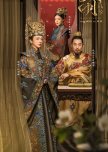
Epic Historical Drama | High Quality Production
What an incredible historical story told with a touch (a lot) of humor, initially.When I first started with the drama, I didn't know what to make of it: is it a real historical story, or is it a comedy? Real historical drama because it’s depicting one of the most interesting era of Chinese history from the Yongle reign in 1402 during the Ming Dynasty. Comedy because of the initial dialogues and relationships portrayed in the story – they are funny and entertaining. Nonetheless, a few episodes in, I found myself really enjoying this drama.
The drama is based on some real events and real figures in the early part of the Ming dynasty. It started with Zhu Di, the Yongle Emperor, seizing the throne from his nephew in a revolt. In the beginning of the story, it focuses mainly on the relationships between Zhu Di, his sons and his grandson. How these relationships are depicted is humorous and enjoyable. Fictional or not, I’m really hooked watching how the father-son-grandson, brothers-brothers, uncles-nephew dynamics played out here; the relationships are just funny, informal, silly and sweet at times. However, after the demise of Zhu Di, the same relationships become hideous and the mood of the drama turns serious and deadly.
This drama also has some brief references to the expeditions of Cheng He, the Tumu Crisis, and various important figures such as Yu Qian, Wang Zhen and the three Yangs. However, Empress Sun is given a greater influence in this drama than in reality. Her son is such a spoiled brat and incompetent.
25 episodes in, the mood changes from light-hearted into dead serious. Many episodes focus on warfare with the northern Mongol tribes. The informal relationships we see earlier within the royal family disappear. The seemingly silly and funny characters of the 2nd and 3rd princes become devious and dangerous. Even the Zhu Zhanji character becomes unpredictable and sinister.
Zhu Yawen is a seasoned actor and is very good in his craft. His portrayal of Zhu Zhanji is amazing, switching from being timid in front of his grandfather the Emperor, to silly with his father the crown prince and with his uncles, to serious and nasty with his enemies. Zhu Yawen has a magician hat filled with unlimited facial expressions, body language, smiles, sneers and demeanor. He switches from one mood to another with ease and makes his character super interesting and convincing. However, he’s gone from the screen after about 2/3 of the drama. (Likewise with Wang Xue Qi who plays the Yongle Emperor character - he exits the screen even earlier.) Both of these actors are supposedly playing the main roles. One character, apart from Sun Ruowei, that consistently appears from early in the drama till the end is Yu Qian played by Su Ke. He is a wonderful convincing actor and I really enjoy watching his character.
I don't particularly like the female lead Rebecca Tang playing Sun Ruowei initially because I find her stiff and unnatural, over acts in certain parts and under acts in others. I also dislike her voice dubbing because her voice and tone don't match the moods and situations of the events. Everything just seems off with her. The Sun Ruowei character also changes greatly before and after she married Zhu Zhanji, and it (the character) doesn't feel like a lead character anymore. However, I’m pleasantly surprised by her transformation when she becomes the Empress Dowager. Her no-nonsense demeanor which doesn’t bode well initially becomes very convincing at the later part of the drama. As mentioned earlier, Sun Ruowei is depicted as a very influential character in this drama as a regent which may not be totally accurate historically. According to the record, the Grand Empress Dowager (Empress Zhang) should have held greater power than depicted and hence been the greater influencer. The relationship between Sun Ruowei and Hu Shan Xiang has also been fictionalized.
All the other actors and supporting casts are very good in their respective roles. After the demise of the Yongle Emperor and his sons and grandson, ie. the initial cast, the drama turns dry for some viewers with politics and warfare with a lot of bloodshed and deaths. All the comedies and humors are gone. The drama progresses with each episode getting more intense then the last. Despite the fictions, this drama is still very well made with not many holes; it's interesting and wonderful to watch.
My verdict: yes, I'd recommend this drama to all, especially those who love historical stories. This is a wonderful drama worth watching despite its length of 62 episodes! I have enjoyed almost every episode, although half-way through, it gets a bit dry without all the initial humors and comedies, but the tension and plots keep me on. The acting is impeccable and the music is one of the best. This drama goes into my MUST-WATCH list.
Was this review helpful to you?

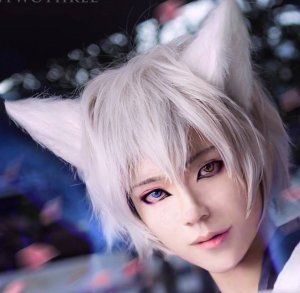
 2
2 7
7 1
1




















